I. Introduction
DeepMind vs OpenAI is very trendy, as everyone wants to know more about these two tech giants. Two of the most influential and cutting-edge artificial intelligence (AI) firms are DeepMind and OpenAI. Both companies are dedicated to advancing state-of-the-art artificial intelligence research and development for the benefit of humanity. Google subsidiary DeepMind has increased artificial intelligence using innovative algorithms and deep learning approaches. In contrast, OpenAI is a nonprofit research organization aiming to promote and develop AI systems that benefit humans. In this article, we will compare DeepMind and OpenAI side-by-side to comprehensively unique their respective artificial intelligence (AI) products, services, and accomplishments.
A. Brief history of DeepMind and OpenAI
DeepMind was established in September 2010 and purchased by Google in 2015. DeepMind is a British business that has made significant advances in artificial intelligence. Elon Musk and other prominent tech entrepreneurs formed OpenAI in December 2015. OpenAI is a non-profit research organization whose mission is to promote and responsibly create friendly AI.
B. Purpose of the article
- Discuss and compare DeepMind and OpenAI, two of the most prominent AI firms.
- Explore the critical distinctions between DeepMind and OpenAI, and speculate about their respective futures.
- Provide a comprehensive overview of the two technologies by contrasting their primary offerings, AI capabilities, and technological implementations.
II. DeepMind Overview
A. What is DeepMind
Founded in September 2010, DeepMind is a British AI startup. AI systems that can play games, solve riddles, and interpret languages are the company’s main focus.
B. Key products and services offered by DeepMind
1. DeepMind’s artificial intelligence (AI) technologies have found use in various fields, such as healthcare, gaming, and finance.
2. The following are some of DeepMind’s most prominent offerings:
- In 2016, AlphaGo beat the world champion of Go, (an ancient Chinese board game), making it the first time that a computer program had won a human-created game of Go.
- Molecular biology was radically altered with the 2018 announcement of AlphaFold, a protein folding prediction system.
- DeepMind Health, an initiative to advance patient care and scientific inquiry through AI.
C. DeepMind’s collaboration with Google
1. In 2015, Google purchased DeepMind, making it an offshoot of the parent company.
2. Several vital advances in artificial intelligence have been made thanks to DeepMind and Google’s partnership.
3. The artificial intelligence systems AlphaGo and AlphaFold were created by DeepMind and Google.
D. Key achievements of DeepMind
1. One of the most significant moments in AI history came in 2016 when AlphaGo beat the world Go champion.
2. Two of DeepMind’s most notable accomplishments were the development of AlphaFold and its ability to accurately predict the three-dimensional structure of proteins given only their genetic sequences.
3. DeepMind has been lauded for its contributions to the healthcare sector, where its AI algorithms have been implemented to diagnose eye problems and enhance patient outcomes.
4. Overall, DeepMind has made a lot of progress in artificial intelligence, and its work could have far-reaching effects in many different areas.
OpenAI vs DeepMind.
— Smoke-away (@SmokeAwayyy) January 13, 2023
Microsoft vs Google.
Choose your side.
III. OpenAI Overview
A. What is OpenAI
In December 2015, Elon Musk and other prominent figures in the technology industry formed OpenAI, a nonprofit research group dedicated to artificial intelligence. OpenAI’s primary objective is to advance ethically and for the greater good of humanity through the creation of helpful AI.
B. Key products and services offered by OpenAI
The result of OpenAI’s research efforts is a set of artificial intelligence systems and tools, such as
a. A state-of-the-art language generation model called GPT-3, which can handle a variety of natural language tasks.
b. OpenAI Gym, a set of tools for making and testing RL (reinforcement learning) algorithms.
c. DALL-E, a tool capable of creating visual representations from written descriptions.
C. OpenAI API Beta
1. The OpenAI Application Programming Interface (API) has gone live in beta. This is helping programmers to use OpenAI’s artificial intelligence (AI) technology for their projects.
2. Developers can use the API to access OpenAI’s language models, such as GPT-3, and create their AI-driven software.
D. Similar companies to OpenAI
Many other businesses have a similar mission to OpenAI, creating ethically sound AI technologies, including:
a. Element AI
b. Vicarious
c. AI2
E. OpenAI’s programming language
OpenAI’s primary AI development and research language is Python. Python has a large and active community of developers, and it is a popular programming language that works well for AI and machine learning projects.
IV. DeepMind vs OpenAI Comparison
A. Key differences between the two technologies
1. OpenAI is a nonprofit research group, while Google’s DeepMind is one of the company’s wholly-owned subsidiaries.
2. While OpenAI is more concerned with the general promotion and development of AI, DeepMind specializes in creating AI systems that can perform activities that generally need human intelligence.
3. OpenAI’s research looks at both the theoretical foundations of AI and its possible uses, while DeepMind’s research only looks at the theoretical foundations.
B. Comparison of their AI capabilities
1. DeepMind and OpenAI have made essential contributions to the field of AI. Both have created AI systems and tools on the cutting edge.
2. DeepMind’s most important AI systems include AlphaGo and AlphaFold, whereas OpenAI’s most important AI systems include GPT-3 and DALL-E.
3. DeepMind and OpenAI have made AI systems that can do many things, like make up their languages, make up their pictures, and play games.
C. Discussion on DeepMind’s use of PyTorch
Several DeepMind R&D projects use the popular open-source machine learning framework PyTorch.
The PyTorch community is vast and active, and the framework is recognised for being simple to use.
The vast and active PyTorch community and the existing PyTorch tools and libraries have been utilised by DeepMind thanks to their adoption of PyTorch.
D. Google’s AlphaGo Zero and DeepMind’s role in it
- AlphaGo Zero, previously known as AlphaGo, is the DeepMind computer program that beat the Go world champion (A famous Chinese game).
- DeepMind and Google’s AlphaGo Zero are vast steps forward in artificial intelligence.
- With past knowledge of Go or human expert data, AlphaGo Zero employs reinforcement learning to educate itself to play the game.
- DeepMind was a key part of making AlphaGo Zero because it has a lot of experience with reinforcement learning and AI that plays games.
DeepMind vs OpenAI Comparison Table
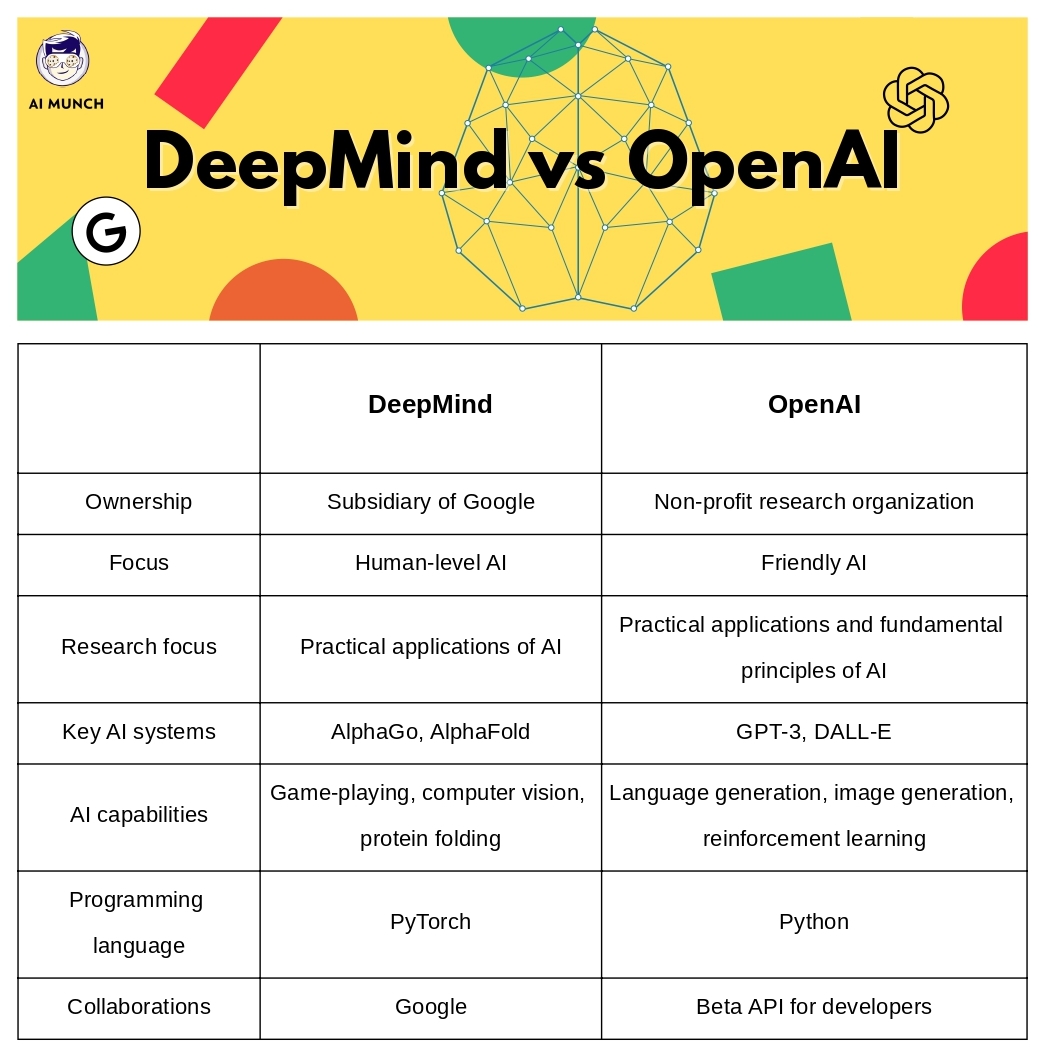
V. Conclusion
A. Summary of key points
DeepMind and OpenAI are at the forefront of AI development, emphasizing producing state-of-the-art AI systems and technologies. OpenAI is a non-profit research organization that takes a broader view of AI than DeepMind, a Google subsidiary focusing on human-level AI. DeepMind and OpenAI have developed significant AI infrastructure and made essential contributions to the field. The DeepMind team employs the PyTorch language, while the OpenAI team prefers Python.
B. Future prospects of DeepMind and OpenAI
The future looks suitable for both DeepMind and OpenAI as interest in artificial intelligence (AI) grows and the field expands. DeepMind will probably keep working on AI systems capable of human-level intellect tasks, while OpenAI will keep advancing the cause of “nice” AI. We can expect both companies to make even more ground-breaking advances in AI and to keep making cutting-edge AI systems and tools.
DeepMind and OpenAI deserve praise for their significant contributions to the field of artificial intelligence. Both firms provide various artificial intelligence (AI) tools and services that may benefit software engineers, academics, and commercial enterprises. DeepMind and OpenAI are excellent resources for those wishing to further their understanding of artificial intelligence (AI) or implement it in their work. The two businesses may be better suited for various AI applications and use cases because they each have unique emphases and priority areas.
FAQs
Artificial intelligence (AI) systems and technologies have come a long way in recent years. DeepMind, a Google subsidiary, is at the forefront of this revolution. DeepMind is building AI systems, that can take over certain jobs that require a lot of intelligence.
DeepMind primarily makes money through its collaboration with Google and the development of AI technologies and products sold to businesses and other organizations.
Google bought DeepMind to get access to its talented AI researchers and cutting-edge AI technologies. Google saw the potential in DeepMind’s work and wanted to be on the cutting edge of AI, a changing field.
Yes, Elon Musk was one of the early investors in DeepMind.
With the field expanding quickly and new AI systems being constantly developed, ranking the most advanced AI in the world is challenging. AlphaGo, AlphaFold, GPT-3, and DALL-E are only some of the most cutting-edge AI systems currently available.
Determining which is better is difficult, as DeepMind and OpenAI have different focuses and priorities. Each company may be better suited to varying types of AI applications and use cases.
Google DeepMind and OpenAI are both leading players in the field of AI. DeepMind is a Google company focusing on making artificial intelligence systems that can do tasks requiring human intelligence. At the same time, OpenAI is a non-profit research organization with a broader focus on friendly AI.
Some of the competitors of OpenAI include DeepMind, IBM Watson, Microsoft AI, and Baidu AI.
OpenAI is a non-profit research organization and does not aim to make a profit. It does, however, get some money from grants, partnerships, and selling its AI systems and technologies.
No, Python is not part of OpenAI. Python is a programming language widely used in AI and is used by OpenAI for some of its AI systems and technologies.
Do you want to read more? Check out these articles.
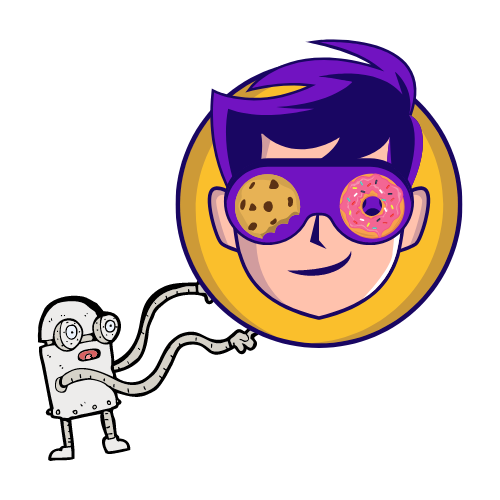


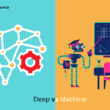
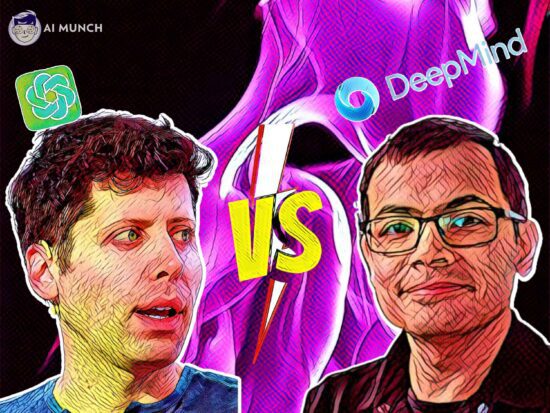



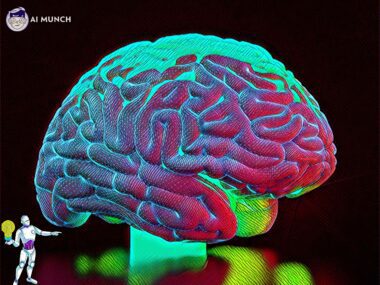


2 comments